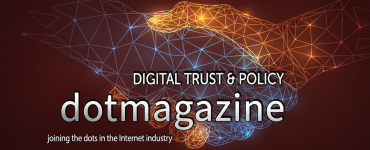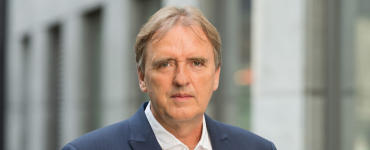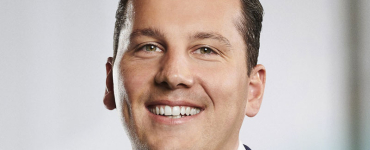I can’t remember the last time I felt like a year had passed slowly. Maybe it has never felt that way for me. Feeling impatient because certain events were not happening fast enough? Perhaps once upon a time, when I was a child waiting for Christmas. But a long year? That must have been before I started at eco, well into the last millennium.
Probably that comes with working in an association that pushes things the way eco does. When there’s a lot going on, the years just fly by. 2022 is no exception. What a lot we have done together this year!
Here is an incomplete excerpt of some of the highlights:
- Right at the start of the year, eco Chair Oliver Süme spoke with the German Federal Minister of Digital Affairs Volker Wissing at the first eco netTALK 2022 about opportunities, goals and challenges in the nationwide expansion of digital infrastructures and fibre optic rollout: “Digitalisation cannot succeed without infrastructures”, said Wissing. He is right.
- Our dotmagazine email newsletter with accompanying online magazine celebrated its fifth birthday and currently reaches more than 1,100 international subscribers and 75,000 annual website visitors. Congratulations to Lars Steffen, Director eco International and Project Manager Domains as well as the editorial team Judith Ellis, Eilín Geraghty, Cáit Kinsella and Ladan Raeisian!
- IT security remains a challenge: “In light of a growing threat landscape and vulnerabilities due to more employees working from home, many companies are not protecting themselves adequately against cyberattacks,” comments Oliver Dehning, Head of the Security Competence Group at eco – Association of the Internet Industry. Our survey on the topic.
- With Car Repair 4.0, we have launched a project that promotes digitalisation, especially in SMEs in the automotive industry: Car repair shops, measurement system providers and AI start-ups will be linked to form an innovation and value creation network.
- Our Complaints Office recorded 50 percent more legal violations online: “As sad and distressing as these increases are, especially concerning depictions of abuse of young people, they also show that our society is becoming more and more vigilant and is clearly acting against illegal content,” says Head of the eco Complaints Office Alexandra Koch-Skiba. “The core message of our Complaints Office has resonated with people: Everyone can report illegal Internet content and thus actively contribute to its take-down as well as its prosecution.”
- Our Industry Monitor recorded an upward trend for our industry – despite the war against Ukraine and the threat of recession. “Secure digital infrastructure is essential, especially in the current crisis situation,” says Prof. Norbert Pohlmann, eco Board Member IT Security. It is, therefore, not surprising that the usage parameters continue to be on an upward trend.
- The eco://awards took place for the 20th time. Once again, they demonstrated the visionary and innovative power of our industry – five solutions were honoured with an award, as well as Kim Dressendörfer from IBM, who was honoured as a “Lady in Tech” for her achievements and as an excellent role model.
- Our German-language podcast Das Ohr am Netz (‘Ear on the Internet’) has a new host duo in Sidonie Krug and Sven Oswald and covers a diverse range of topics, including how to start a tech company, the sustainability potential of digital technologies, and how to protect companies from cyber attacks.
- „#JOINTHESOLUTION: We are part of the solution – the Internet industry” is the motto under which we highlight the positive sides of digitalisation, be it in climate change, the sustainable use of resources, food and nutrition security or the early identification of serious diseases such as cancer.
- The Internet Security Days, which we organised together with heise Academy 2022 for the 12th time. 500 participants joined us for two days at the Phantasialand Brühl fun park. The topic of IT security is red-hot in autumn 2022, with the Ukraine conflict and economically motivated attacks with extortion Trojans (ransomware) threatening small and large companies as well as public authorities to an unprecedented degree.
- In the field of politics and law, the year 2022 offered ample opportunity to classify current trends from an informed perspective, to comment on them and, where necessary, to contribute productive proposals. Oliver Süme pointed out that the ECJ decision on upload filters (Art. 17 of the Copyright Directive (EU/2019/790) is compatible with Union law) is a “Bad signal for online freedom of expression”. With regards to the ECJ ruling on data retention (German regulation not compatible with Union law), he commented: “In order to finally reverse data retention in Germany, the German federal government must now do its homework: In addition to the pending decision of the German Federal Administrative Court, we urgently need a law to repeal the current regulations.” On the Trans-Atlantic Data Privacy Framework, he said: “We very much welcome that a solution for the legally secure transfer of personal data from the EU to the U.S. was presented today in Washington, which also attempts to take account of the requirements of the European Court of Justice.”
- Klaus Landefeld, Vice-Chair of the Board, welcomed a ruling by the German Federal Constitutional Court that declared online state searches carried out in the state of Bavaria to be partly illegal: “eco now sees the German federal government in particular, as well as other federal state governments, as being called upon to critically examine the existing and planned regulations at the federal and state levels and to bring them into line with the current constitutional requirements. We welcome the fact that at least the Federal Ministry of Justice and Consumer Protection (BMJV) has already raised the prospect of this.”
- Alexander Rabe, Managing Director, took stock after four years of the GDPR: “As things stand, its interpretation varies not only among a large number of EU Member States – even within Germany, there are doubts about the uniformity of the views of the state data protection commissioners. That is not a reliable signal for anyone: This is not a reliable signal for anyone: this uncertainty, which ultimately affects us all – from corporations and SMEs to start-ups, as well as schools, administrations and ultimately every Internet user – must be eliminated by politicians as soon as possible.”
- At the Digital Summit of the German federal government, we pointed out that a strong data economy needs legal certainty and sovereign digital infrastructures: This is the only way we can build a strong data economy in Germany in the long term. “A well-functioning ecosystem of hardware – i.e. digital infrastructures such as data centres and edge computing, key software technologies such as artificial intelligence, as well as strong cooperation between business, politicians and academia – creates the groundwork for a sustainable, competitive and innovative data economy,” explains Oliver Süme.
- This is precisely the goal we are vigorously pursuing with the Alliance for the Strengthening of Digital Infrastructures in Germany. This includes competitive market conditions, especially in the energy sector. “Data centres are the foundation for digital transformation and a major component of the digital ecosystem. Both industry and public administration should care where their data is located in the future,” says Volker Ludwig, co-spokesperson of the Alliance for the Strengthening of Digital Infrastructures in Germany.
- Dr Béla Waldhauser, spokesperson of the Alliance for Strengthening Digital Infrastructures in Germany, believes that data centres need to take on responsibility: “The goal of making data centres in Europe climate-neutral by 2030 is the right approach for our Alliance and is thus our responsibility for the future.” In cities like Frankfurt, the industry could also make an active contribution to reducing energy demand by using waste heat. Through the consistent utilisation of waste heat from data centres, all residential and office space in Frankfurt could be heated in a CO2-neutral manner by 2030. In order to exploit the potential, political actors who can create the appropriate framework conditions, are called on. The Alliance shows what is important in this context in a position paper.
- Gaia-X launched started the implementation phase of Gaia-X Federation Services (GXFS) at the beginning of the year and awarded contracts. T-Systems International, DAASI International, BigchainDB, Fraunhofer AISEC, ecsec and XLAB started implementing the technical specifications in February. Starting in June, the Gaia-X projects Sovereign Cloud Stack (SCS) and Gaia-X Federation Services (GXFS), funded by the German Federal Ministry for Economic Affairs and Climate Action (BMWK), were jointly tested on open infrastructure. In November, the quality assurance phase for testing the developed open-source software code was initiated.
- Meanwhile, DE-CIX is making great strides. With Ivo Ivanov, we have found a new Chair of the Board of DE-CIX Group AG. My move to the Supervisory Board comes at a good time. DE-CIX is in a so far unprecedented growth phase. I look forward to contributing my experience within my new supervisory board position in the future and continuing to help write the DE-CIX success story. I would like to thank all companions, partners and especially the entire team for the extraordinarily successful development of DE-CIX over the past decades. Who would have thought over 25 years ago that DE-CIX could become one of the drivers of digitalisation? And not only in Germany, but worldwide. I am particularly proud of that.
I wish all those who in 2022 have once again helped with passion and expertise to make our association, our industry and our digital lives a bit better a great turn of the year – and I look forward to a new year with you.
I’m sure we won’t be bored next year either!




